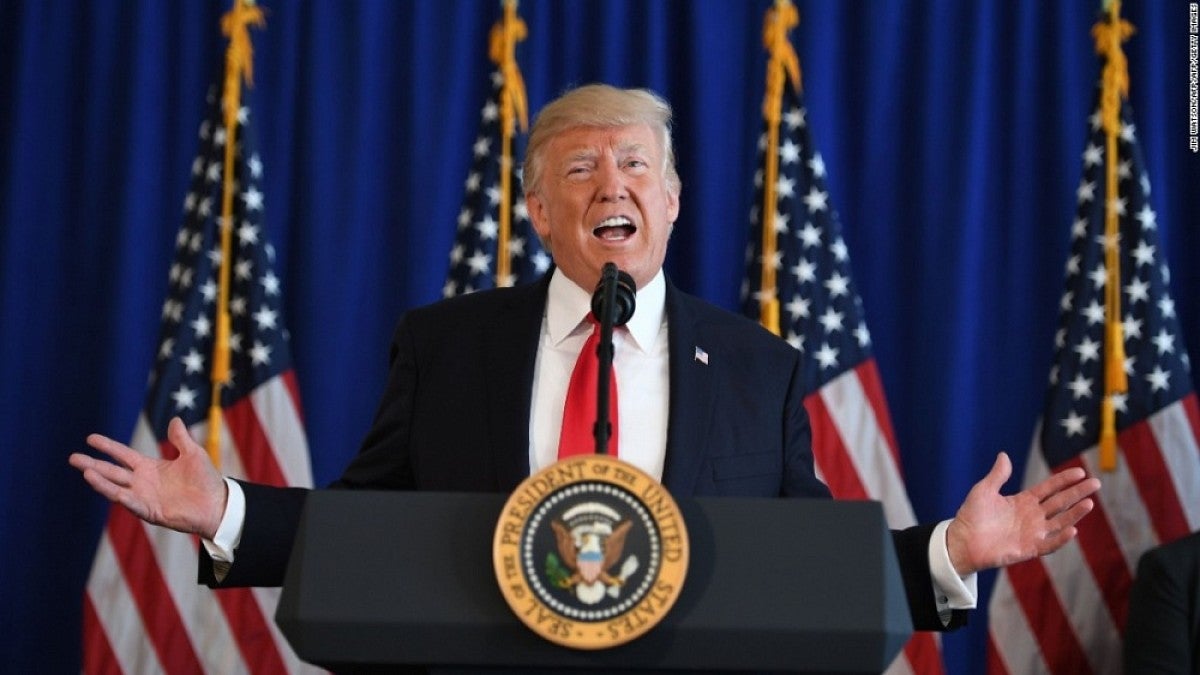Donald Trump’s statements and tweets may not have become less controversial or outrageous, but they are being treated as if they were. At least, that’s what UO law professor Liz Tippett says in an article she recently authored.
“For better or worse, we don’t interpret Trump’s statements the same way as we did a year or two ago,” she said. “We apply what we have learned about Trump as a person and his arsenal of persuasion tactics . . . In other words, we are more conversant in Trump-ese.”
She says it’s because people have become acclimated to the president’s behavior. Many people don’t see him as a trustworthy source of information, so his statements aren’t given much thought. Therefore, a false statement doesn’t have as much impact as it would have during the election, for example, when people still expected the presidential candidate to at least attempt to be truthful.
“Once Trump is viewed as an unreliable or dishonest messenger, we respond by discounting the message,” Tippett said. “It ends up in the same mental category as a beer commercial.”
For more, see “Why Trump’s tirades are losing their potency” on The Conversation. The piece was also picked up by Salon, the Los Angeles Times, The Raw Story and other outlets.
Before joining the UO in 2012, Tippett, who graduated from Harvard Law School in 2006, was an employment law attorney at Wilson Sonsini Goodrich & Rosati. Her research looks at behavioral ethics, employment law and decision-making.


